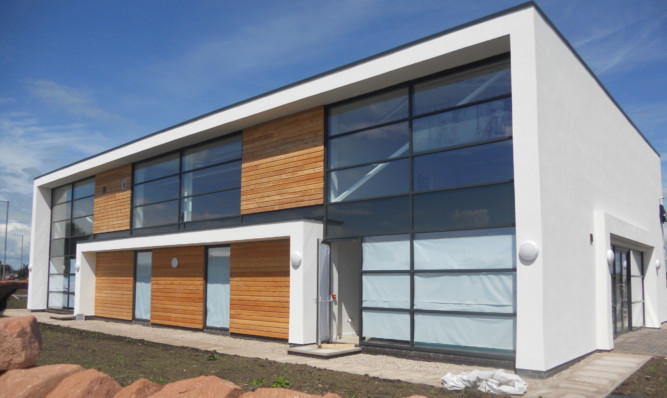
The factory that helped win the war.
It was known as the “Greatest Factory on Earth”. HM Factory Gretna was a massive munitions producer tucked away in a remote corner of Scotland.
Now, as the centenary of the start of the First World War is marked, the part it played in winning that war is being told fully.
Over £1 million has been invested in the new Devil’s Porridge Museum at Eastriggs, so called after the nickname for the vital cordite produced.
It has taken the two decades of research of the volunteers from the old museum and presents it in an up-to-the-minute way that will engage the whole family.
The sheer scale of the factory was mind boggling. It sat on a site nine miles long which straddled the Anglo-Scottish border between Annan and Carlisle.
Some 30,000 munitions workers came here from all over Britain and the Commonwealth. And in this quiet part of the Solway Firth, more cordite propellant was produced than all the other British factories put together.
It was absolutely critical as, before Lloyd George oversaw building begin in 1915, Britain was losing the war through shortage of shells.
The museum tells how the 10,000 navvies who came to build the factory drank the place dry.
And similarly the part played by the 12,000 young women who came to do their bit is brought to life by personal accounts, vivid graphic panels and humorous stories.
Eastriggs and Gretna were created to house the workers and provide all the amenities and facilities to meet their needs.
Among the fun interactive displays is one where visitors pull a beer pump to bring up a question on the government’s unique decision to nationalise all the pubs in the factory area.
A major attraction is the refurbished fireless locomotive, Sir James. This 1917 monster hauled tons of explosive “devil’s porridge” paste from one end to the factory to the other to be made into cordite.
Conventional steam engines could not be used because of the sparks produced.

Enjoy the convenience of having The Sunday Post delivered as a digital ePaper straight to your smartphone, tablet or computer.
Subscribe for only £5.49 a month and enjoy all the benefits of the printed paper as a digital replica.
Subscribe